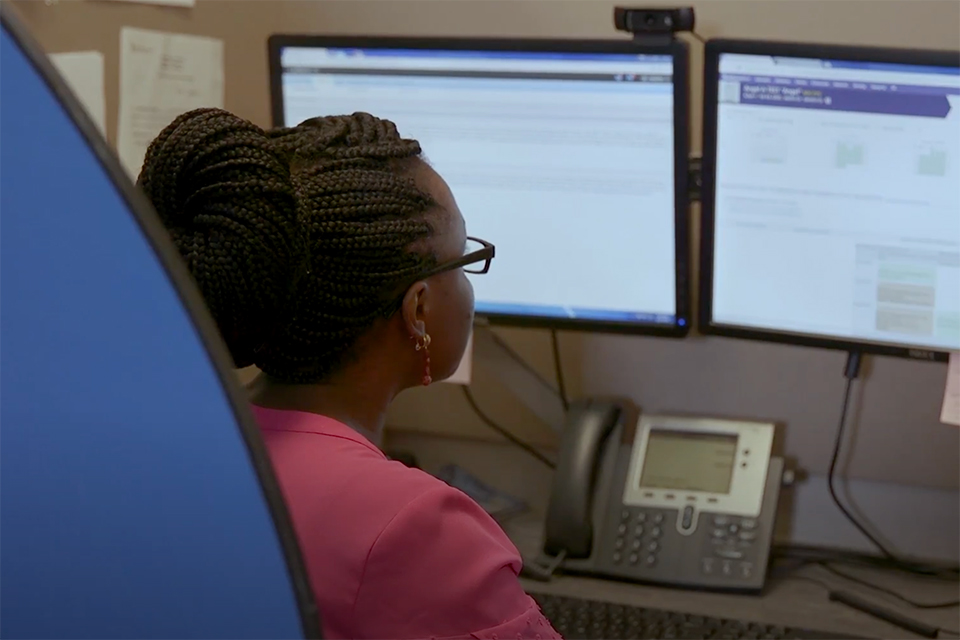Helping Hands: Using Telehealth to Help Patients — and Pharmacy Students
April 24, 2020 Charmaine Rochester-Eyeguokan, PharmD, CDE, BCACP
The Center for Innovative Pharmacy Solutions offers an innovative way for student pharmacists to complete required rotations during the COVID-19 pandemic.
Editor's Note: This post is part of a series of Helping Hands stories authored by School of Pharmacy faculty, staff, students, trainees, and alumni who stepped up to assist their family and friends, colleagues, and communities during the COVID-19 pandemic.
The School of Pharmacy's Center for Innovative Pharmacy Solutions (CIPS) eHealth Center provides pharmacist-to-patient comprehensive medication therapy management (MTM) services and provider-to-provider medication information/consultation, as well as multidisciplinary patient visits, delivered via HIPAA-compliant video technology such as Zoom®, Vidyo®, and Skype® for Business, while provider-to-provider instant text messaging occurs via DocHalo®.
The emergence of COVID-19 and ensuing quarantine policies produced a challenge for 10 of the School's fourth-year pharmacy students on their last rotation block prior to graduation in May. Because the CIPS eHealth Center was already poised to provide patient care via telehealth, the center quickly used the opportunity to assist these students in the completion of their rotations. eHealth Center pharmacists are proficient in the use of and able to document in various electronic medical records (EMRs), including EPIC®, Cerner®, Athena®, and ThinkEHRx, which allows pharmacists and the students to function in an embedded team-based model, despite working from remote locations. Care delivery in this manner allows for efficient use of the pharmacist's resources, while improving patient's access to care in scenarios where COVID-19 and the quarantine policies, distance, lack of transportation, and inconvenience might be a barrier to patients, especially those who live in rural areas.
The fourth-year pharmacy students on rotation at the eHealth Center participated in transitions of care services, chronic disease state MTM services, medication reconciliation services, comprehensive medication reviews, and targeted intervention services. Students contacted patients in their homes, interviewed these patients, developed therapeutic plans, and documented notes for EPIC. Students met virtually every Monday and Thursday for topic discussions, but they met individually with preceptors — following social distancing practices — at the eHealth Center for patient care and project discussions.
Patients were very thankful to have someone reach out to them during the crisis, and they benefited by receiving quality patient care. In addition to patient care, students completed projects that will benefit the eHealth Center long after the COVID-19 crisis ends. Based on our survey, all of the students perceived that patient care via telehealth was a suitable model for effective communication to patients. Overall, this was a successful five-week initiative, as this was the first time the center had 10 students at one time.